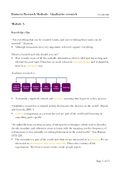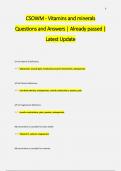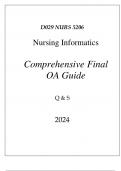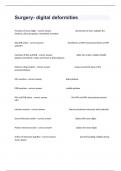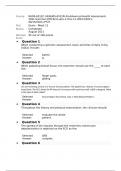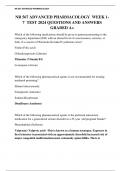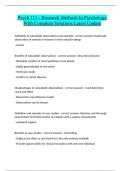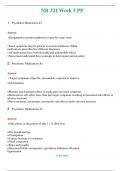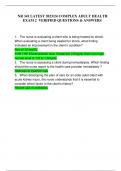Notes de cours
Summary BRM II, Qualitative research mid-term exam (GRADE 9+) and assignment
- Cours
- Établissement
This 33 page summary is the perfect preparation for your mid-term BRM 2 exam! with the help of this summary, I managed to get 22,5 out of 25 points on the mid-term exam. It's an easy and good way to prepare well for this exam. Moreover it's very useful for your group assignment.
[Montrer plus]
